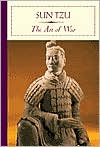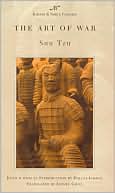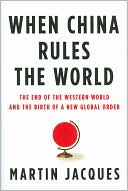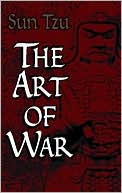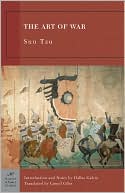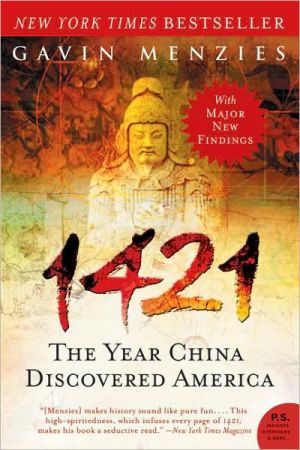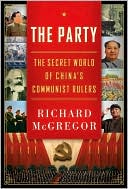Wild Grass: Three Portraits of Change in Modern China
In Wild Grass, Pulitzer Prize—winning journalist Ian Johnson tells the stories of three ordinary Chinese citizens moved to extraordinary acts of courage: a peasant legal clerk who filed a class-action suit on behalf of overtaxed farmers, a young architect who defended the rights of dispossessed homeowners, and a bereaved woman who tried to find out why her elderly mother had been beaten to death in police custody. Representing the first cracks in the otherwise seamless façade of Communist...
Search in google:
In Wild Grass, Pulitzer Prize—winning journalist Ian Johnson tells the stories of three ordinary Chinese citizens moved to extraordinary acts of courage: a peasant legal clerk who filed a class-action suit on behalf of overtaxed farmers, a young architect who defended the rights of dispossessed homeowners, and a bereaved woman who tried to find out why her elderly mother had been beaten to death in police custody. Representing the first cracks in the otherwise seamless façade of Communist Party control, these small acts of resistance demonstrate the unconquerable power of the human conscience and prophesy an increasingly open political future for China. The New York Times Ian Johnson's Wild Grass is a beautifully spare recollection of three ordinary people in the 1990's who challenged the power of the Communist state in their own Lilliputian way...Mr. Johnson is to be commended for his sensitive rendering of his subjects, and his welcome relegation of his own role to the background of the tapestries he weaves. —Bruce Gilley
The Peasant Champion\ The photo of Ma Wenlin fluttered in my hand, catching the attention of the man sitting across from me on the train.\ “He’s a lawyer,” I said. “I’m looking for him.”\ The man was silent for a moment and then said, “He looks like a peasant, not a lawyer.”\ The black-and-white picture showed Mr. Ma staring straight into the camera, his face expressionless except for his faint eyebrows, which arched slightly in a quizzical expression. His hair was short, almost crew-cut, and he had a light stubble above his lips. He wore a plain white dress shirt, buttoned to the neck but with no tie. There was no effort to engage the viewer, no grin, no smile. It was an old-fashioned photo of a man who didn’t pose for the camera as modern people do, a man who in the first half of his fifty-nine-year life had been photographed just once or twice.\ “He represented peasants,” I said. “In a lawsuit against the government.”\ Like all second-class sleepers, ours had six bunks and no door, allowing people to wander freely down the car, poking their heads in to visit friends and see who else was on board. But we were alone: the only other person in our compartment, a man in a middle bunk, was snoring lightly and the other passengers bustled back and forth in the corridor, concerned only with finding thermoses of hot water to make tea.\ “Those kinds of lawsuits are complicated,” the man said ambiguously.\ Then he paused and collected his thoughts. He had a shock of gray hair that hadn’t receded an inch from his tanned, creased forehead. His suit was Chinese style, the sort worn by the founder of modern China, Sun Yat-sen, and popularized by Mao Zedong, or Chairman Mao, communist China’s first leader. Like Mr. Ma, the man wore his shirt buttoned up to the neck, with a fountain pen sticking out of the left breast pocket. It was the outdated uniform of Communist Party cadres from a decade ago, one rarely seen in the country’s prosperous areas. But here, in a slow train leaving a remote county seat, it didn’t look quite so out of place.\ “I’m sure he won’t be successful,” he continued, looking at me carefully. “This is a poor part of the country.”\ I nodded but disagreed, casting a glance outside for confirmation. The windows of the train were streaked with rain, and through the blurred glass the denuded hills and earth-colored villages of the Loess Plateau rolled by. Once, this had been fertile forests and steppes, one of the birthplaces of Chinese civilization. Nearby was the grave of the Yellow Emperor, mythic founder of the Chinese people. Down in Xi’an, where we were headed, were the world-famous terra-cotta warriors that had been buried with China’s first emperor more than two thousand years ago. He and other rulers had protected this cultural heartland by building fortifications not far from here that later became known as the Great Wall. Seventy years ago the plateau’s mountains and gullies had sheltered the Communist Party for a decade, first during China’s civil war and later during World War II. It was a region oozing in history and significance but now was exhausted, poor and relatively obscure.\ One commonly hears that these parts of the country are where change is least likely to happen. Instead, one is always encouraged to go to the prosperous coastal metropolises, such as Shanghai or Shenzhen, to look for China’s future. But the more I learned about Mr. Ma, the more I understood that this region’s backwardness had made it a precursor of change elsewhere in China—the poverty, the intransigence of local officials and the extreme environmental degradation bringing to a boil here problems brewing across the country.\ “Well,” I said. “This was a poor place when the communists were here, and they ended up running China. Maybe it’s not so backward. Maybe it’s even avant-garde.”\ We both laughed, relieved that we could safely turn the conversation to something less risky. We blew on our tea leaves, hurrying their descent to the bottom of the cup.\ My cell phone went off. “If you want any information about Ma Wenlin, I suggest you ask me now,” a man said quickly. “Because by the time you arrive in Xi’an, I’ll be in jail. My phone is bugged.”\ “I’ll call you when I get to Xi’an,” I said. “I’m sure there will be no trouble. We’ll have dinner tonight.”\ “I won’t be around tonight. I will be in jail.”\ “No, you won’t,” I said. “Let’s talk later.”\ We hung up and I switched off my cell phone.\ The old cadre sitting opposite poured some water from the thermos into our cups, filling them back up. He eyed me curiously.\ “Retired?” I asked.\ “Yes, going to visit family in Xi’an.”\ “Your children?”\ “Yes, they’ve moved to Xi’an and work there. I have grandchildren down there.”\ I liked him, a retired official still dressed for work but on his way to baby-sit. He reminded me of Mr. Ma, who had also been a doting grandfather. It was hard to explain why I had Mr. Ma’s picture in my hand, and would probably have seemed incomprehensible to the old man if I had tried. He had been dubbed by locals a nongmin yingxiong, or “peasant champion”—a name that conjures up a reckless romantic stirring up revolt among the repressed. It seemed slightly absurd, like something out of a florid South American novel, yet Mr. Ma had scared the government enough to jail him for “disturbing social order.” This was a vague, almost meaningless charge, but what I heard about Mr. Ma before my trip only piqued my interest. People said that he had represented tens of thousands of peasants in a lawsuit against the government. Rumors, too, abounded that he’d led protests, traveling from village to village to whip up the peasants against the government. It all seemed a bit hard to believe, so I had come to find out what he had done. I wondered what it meant, at the turn of the millennium, to foment a peasant rebellion, a specter that for thousands of years has haunted China’s leaders and hastened the downfall of more than one dynasty. It was his history—the facts about who he was and what had happened to him—that I was after. I wanted to uncover one man’s story from the rumors and half-truths that silt up events in China.\ We sipped tea and smiled at each other. The old man closed his eyes, trying to sleep. I stared at Mr. Ma’s picture, trying to figure out what I’d learned about him.\ My eyes, however, kept wandering to the jagged landscape outside. The yellow alluvial soil that covers the plateau runs up to 300 feet deep and is so prone to erosion that geographers reckon it is the most uneven landscape made of soil in the world, constantly shifting and breaking. Grotesque outcrops rolled by, formed when huge chunks of loess soil break off the side of a hill vertically, like slabs of lava falling into the sea. Standing on top of such promontories, which centuries of human effort have inevitably turned into a small terraced cornfield or the site of a small temple, you can see dozens of other miniplateaus and fields, some just a few hundred yards away, but separated by cliffs and gullies that can fall hundreds of feet to a dried-up creek below. A newcomer can sometimes feel a sense of panic after scrambling along a few ridges in either direction and finding only precipices.\ The cliffs sometimes gave way to the flat, dry riverbeds and smudgy vistas of hills beyond. Underpinning this monochromatic scenery was a supercharged environmental destruction. Each year thousands of tons of topsoil wash down the rivulets and streams into the giant Yellow River. The river, which skirts the plateau in a giant northern loop of several hundred miles, takes its name and silty consistency from the plateau’s discharge.\ As our diesel locomotive carefully picked its way south, we were embraced by a warm yellow glow, the color of the soil, the water and, on days like this, even the sky. This had been my fifth trip to the Loess Plateau, and I got back about once a year, drawn by the scenery, the stubborn cultural traditions and the tensions bubbling up from below.\ *******\ I had set off to find Mr. Ma two days earlier, boarding an 8 a.m. flight from Xi’an to Yulin, a small city of 93,000 that boasts the only airport on the Loess Plateau. It was a Monday and the flight was full, a shuttle ferrying small-time officials on coveted trips down south to the provincial capital and back up with booty bought in Xi’an’s relatively swank shops.\ Yulin has virtually no private enterprise to speak of, so no one but a bureaucrat or official from a state company could afford the $100 ticket, equivalent to the annual cash income of a Loess Plateau farmer. Unlike the train, there were no retirees on board, no students, no children and almost no women. It was all men, all in two- or three-piece western suits, many lugging consumer goods that were pricier or harder to find up on the plateau. One man had a video disc player in a box bound with twine, another carted a box of apples, a third hauled a wheel rim for a Chinese-made Audi.\ An hour later I was in a taxi heading for town. It was only 10 a.m., but in August the sun was already high and we raised a cloud of dust as we raced through the parched streets. After a few minutes we entered Yulin, its roads lined with white-tiled buildings and dusty poplars.\ This was a moment I’d rehearsed several times. I knew my driver was going to ask me where to go in Yulin and I knew I’d have to lie to him. What I wanted to do was go to a hotel in town, check in and meet a couple of lawyers who had known Mr. Ma. They had insisted on meeting in a hotel because they were terrified the Public Security Bureau would get wind of our talk if we discussed Mr. Ma’s case in public.\ Hotels, though, are dangerous places, and I had to stay there for as little time as possible—an overnight stay was out of the question. That’s because guests in Chinese hotels are obliged to give their visa number. Mine was a journalist’s, with a “J” in front of the number. Each night, hotel guest rolls are handed over to the police and in the morning—depending on the vigor of the local police department—they are checked. The presence of suspicious types, including journalists, is reported to the local government, which then checks if the person has applied to visit its town—or is there illegally. By staying at the hotel for just a few hours, I minimized the chance that the Public Security Bureau would know of my presence in town; the bureau would have likely completed its morning check for that day, and it seemed unlikely that the hotel manager would call up the authorities and report my presence. After all, the Great Wall is located just a few miles north of the city and tourists were welcome.\ But I couldn’t tell all this to the taxi driver. Taxis are scarce in small towns like Yulin, and drivers tend to hang around hotels waiting for customers. So, too, do security agents, who lollygag in lobbies watching the people go by. If the driver were to wait for me in front of the hotel, he’d likely get bored and go inside the hotel to chat, possibly with an agent, perhaps telling him about the foreigner he’d just picked up at the airport and taken to a hotel and who intended to go on later today to Yan’an—strange travel plans for a tourist. Another worry was that if the security bureau later checked the hotel rolls and noticed me, they might ask the hotel staff how I’d left town. The doorman or the other taxi drivers waiting at the hotel would probably be friends with my driver. A call to the taxi company would give them the car’s license plate and maybe the driver’s cell phone. That would allow them to trace me to Yan’an and spoil the rest of the trip.
Prologue: One Hundred Battles a Day31The Peasant Champion112Dream of a Vanished Capital873Turning the Wheel183Notes293Selected Bibliography299Acknowledgments301Index303
\ The Washington PostIn Wild Grass, Ian Johnson, the Wall Street Journal correspondent who won a Pulitzer Prize for his reporting on the Falun Gong, expands on various aspects of grassroots rebellion in China, offering a gripping tale of a few very ordinary people and their extraordinary courage in fighting for their rights against the Communist Party leviathan. — Nayan Chanda\ \ \ \ \ The New York TimesIan Johnson's Wild Grass is a beautifully spare recollection of three ordinary people in the 1990's who challenged the power of the Communist state in their own Lilliputian way...Mr. Johnson is to be commended for his sensitive rendering of his subjects, and his welcome relegation of his own role to the background of the tapestries he weaves. —Bruce Gilley\ \ \ Publishers WeeklyThese three intimate case studies explore how China's recent reforms have opened avenues for dissent. Johnson portrays the upsurge of popular protests as the leading edge of an inchoate grassroots movement that will ultimately threaten Communist Party rule. He is skeptical about whether the Party can accommodate or co-opt expectations arising from a nascent legal system through which grievances are supposed to be channeled. The problem he illustrates is that petitioners too often lose, no matter the justice of their cause-the legal system is hopelessly skewed in favor of the rich and connected. The three cases studies are chosen to represent the variety of experiences of ordinary Chinese. The first involves a self-educated peasant lawyer who takes on the local political elite over the excessive and illegal taxation of impoverished farmers, and mobilizes thousands in the process. The petitioner is encouraged by a court victory in one village, but the demands are defeated and the protagonist jailed when higher authorities realize the danger of his appeals. The second case pits owners of homes in the historic heart of old Beijing against city planners who want to bulldoze nearly everything old to make way for high-rise developments. The third case exposes the persecution and determined persistence in her faith of one woman who joined Falun Gong protests. Johnson won a Pulitzer in 2001, as Beijing bureau chief for the Wall Street Journal, for his coverage of Falun Gong. While it offers insight into grassroots activity in China, this local focus makes the book less useful for understanding how factional fighting within the governing elite sometimes opens opportunities for successful dissent. Agent, Chris Calhoun, Sterling Lord Literistic. (Mar. 23) Copyright 2004 Reed Business Information.\ \ \ \ \ Library JournalGiven modern China's turbulent history, it is no surprise that its current leaders value political stability, but they cannot fully control the change that their own policies have engendered over the past quarter century. In this minor gem, Johnson, a resourceful Chinese-speaking Beijing correspondent for U.S. newspapers in the 1990s, skillfully explores the possibilities for social and political change in China through the stories of several ordinary Chinese. With extraordinary courage, these men and women took on an authoritarian and corrupt political establishment. Employing lawsuits, publications, petition campaigns, and personal witness, Johnson's gallery of stubborn and persistent idealists mounted challenges to such unsavory aspects of contemporary China as illegal exactions by local governments, the destruction of Beijing's old city by greedy developers, and the savage repression of the Falun Gong exercise and meditation movement. They, says the author, may be the sprouts of an emerging civil society. This accessible, journalistic portrait of life in today's China is recommended for all libraries.-Steven I. Levine, Univ. of North Carolina at Chapel Hill Copyright 2004 Reed Business Information.\ \ \ \ \ Kirkus ReviewsThoughtful reportage on the small campaigns of resistance to state rule that are springing up throughout China. Huge portions of Beijing are now being scraped away, the 600-year-old terracotta-tile roofs and cobblestone streets replaced by glittering skyscrapers in the name of economic modernization. That is an offense to preservationists, one of whom observes that "Beijing's value is as a whole. . . . It was like Jerusalem, a complete medieval city." It is a worse offense to the thousands of Beijing residents displaced by urban renewal; their property has been condemned and declared almost worthless, then sold out from under them for the equivalent of millions of dollars-and by the government. The long-suffering Chinese people may have once put up with such fraud and theft, writes Wall Street Journal Berlin bureau chief Johnson. But in the wake of government efforts to modernize the state with "a legal system that can keep order nationwide," which has led to an explosion of lawmaking, ordinary citizens are using the courts and other judicial channels to fight back-vigorously but mostly without success. Johnson profiles three cases: the efforts of activist Fang Ke to save old Beijing from a government "bent on destroying everything but a few small corners of the old town, turning them into tourist zones"; a small-scale farmers' rebellion on the Loess Plateau, protesting oppressive taxes and the brutal tactics used to collect them; and-perhaps most interesting to Western readers-the Chinese government's battle to declare the religious movement called Falun Gong a dangerous cult. (The author won a Pulitzer in 2001 for his reporting on Falun Gong.) Johnson's defense of Falun Gong, whichblends calisthenics and meditation to improve both health and moral righteousness, is compelling, his rejection of the government's efforts to equate movement leader Master Li with Jim Jones well argued. "Fundamentally," he writes, "what was often forgotten in the learned discourse was that the government, not Falun Gong, was killing people." Of considerable interest to China watchers and human-rights activists. Agent: Chris Calhoun/Sterling Lord Literistic\ \

